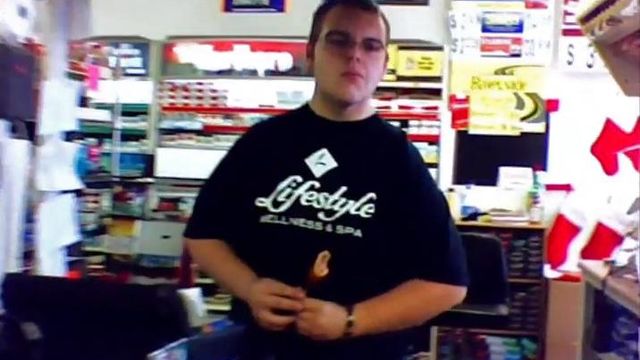Undercover officers catch store clerks keeping winning lottery tickets
Since 2009, the North Carolina Education Lottery has teamed up with local authorities for what they call a "Player Protection Campaign," aimed at caching cheating lottery clerks.
Posted — UpdatedThis scene played out Dec. 3, 2010, at a convenience store in Rutherford County. The clerk, Michael Mace, was later arrested when he tried to cash in the $1,000 ticket at a claims office. He was given 24 months’ probation.
Since 2009, the North Carolina Education Lottery has teamed up with local authorities for what they call a “Player Protection Campaign,” aimed at caching cheating lottery clerks.
The undercover officers use special lottery tickets, designed to mimic a winning ticket when it is scanned at a lottery terminal. The clerk is supposed to tell the undercover officer posing as a lottery player that the ticket is a winner and that the prize must be claimed at a lottery office.
Retailers who take customers’ winning tickets can face a Class H felony charge of attempting to obtain property by false pretenses. During the lottery's latest investigation, which lasted 14 months and ended this past March, seven people were arrested, including two in Wake County.
The North Carolina Education Lottery sells, on average, about 2.2 million tickets each day at more than 6,700 retailers across the state. As the lottery’s director of security, Moe McKnight has a lot of games, store owners and clerks to keep an eye on.
“We just want to make sure the players have an enjoyable experience,” he said. “They trust the system. They feel confident in the security and safeguards that we have in place.”
“I’d like to check these tickets,” the undercover officer tells the clerk.
“Nothing,” the clerk says, after scanning the tickets.
“None?” the officer asks. “Are you sure?”
“None,” the clerk responds. “No winners.”
Store owner Dipak Rajpuria pleaded guilty in the case. He received probation and lost his license to sell lottery tickets.
North Carolina Education Lottery officials terminate the lottery operations at any store where the owner was charged, and they suspend lottery operations at stores where an employee is charged. Stores are not allowed to resume ticket sales if the clerk charged with attempted fraud is still an employee there.
Raleigh store owner and lottery retailer Steve Byers says he knows the prospect of cashing in can test clerks’ morals. He makes sure his employees play by the rules, for his sake and the customers’.
“It’s something you have to keep on top of, something you have to manage, because there’s a lot of money involved, a lot of possibilities for things to go wrong, a lot of temptations,” he said. “There’s no limit to the potential of abuse that can happen with this type of thing.”
To help combat the problem, lottery officials are deploying scanners across the state, which allow customers to check tickets by themselves. While winners are obvious on some scratch-off tickets, that’s not the case in all games. Some require game knowledge beyond matching some numbers or symbols.
Lottery officials suggest players educate themselves and check for themselves. Also, players should sign the back of their tickets as soon as they get them to show ownership.
• Credits
Copyright 2024 by Capitol Broadcasting Company. All rights reserved. This material may not be published, broadcast, rewritten or redistributed.





